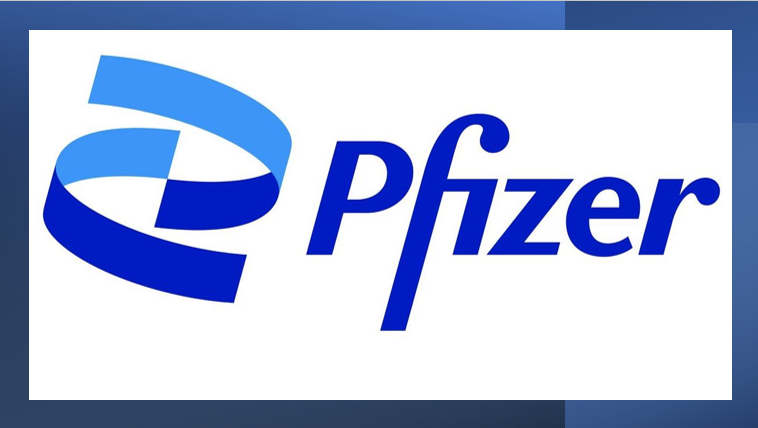News & Trends - Pharmaceuticals
Real-world evidence confirms high effectiveness of Pfizer vaccine, experts say

Pharma News: The impact and effectiveness of the Pfizer-BioNTech COVID-19 vaccine against infections, cases, hospitalisations, and deaths following a nationwide vaccination campaign in Israel, has now been published in the Lancet on 5 May 2021.
Dr Gillies O’Bryan-Tear, Faculty of Pharmaceutical Medicine, UK, said “This real-life vaccine effectiveness study from Israel is the first such study published on a large section of a vaccinated population.
“The study looked at a large number of infections – 232,268 amongst some 5.2 million people vaccinated – far more than can be analysed in a controlled trial setting.
“The results show that the effectiveness of the Pfizer-BioNTech vaccine was over 90% for SARS-CoV-2 asymptomatic infection, rising to over 96% for symptomatic infection, hospitalisation and death. These results mirror the clinical trial data (although the trial did not analyse asymptomatic infection) and were seen across all age groups above 16 years, and demonstrate the outstanding effectiveness of this mRNA vaccine in a real world vaccination campaign.
“The national incidence of SARS-CoV-2 fell rapidly during the vaccination campaign, and the authors address the question of how much of this was due to lockdown, and how much to vaccination, using incidence by age cohort to demonstrate that it was primarily the vaccine campaign which achieved this in Israel.
“Of interest, a supplementary analysis examined effectiveness of the vaccine 14-21 days after the first dose (in Israel, the second dose was given according to the clinical trial schedule, at 21 days). This showed substantial effectiveness also against hospitalisation (77%), severe or critical hospital cases (80%), and death (88%).
“For those who have been critical of the UK stance of providing first doses to as many as possible and delaying the second dose, the results show that people need to receive the second dose for full effectiveness (duration of effect is not addressed in this study since follow up was insufficient). On the other hand, proponents of the delayed dosing policy can also draw comfort from the fact that even single dose effectiveness was substantial for the severe endpoints of hospitalisation and death, although less so less so for asymptomatic and symptomatic infection (49% and 63% respectively),” Dr O’Bryan-Tear added.
Dr Peter English, Former Editor of Vaccines in Practice Magazine and Immediate past Chair of the BMA Public Health Medicine Committee, said “The authors of this paper looked at real-world vaccine effectiveness from 7 days after the second dose of vaccine. This 7-day post second dose interval is appropriate.
“It takes the immune system some time to respond to the first exposure of dose of vaccine – immunity to Covid-19 vaccines seems to continue to improve for at least five weeks after the first dose.
“Once the immune system has been effectively “primed” by the first exposure, however – and this requires an adequate prime-boost interval – then, following a subsequent exposure (e.g. a dose of vaccine), there is a very rapid increase in antibody levels, and a rapid mobilisation of the cellular immune responses. This happens within a few days, so an interval of 1 week after the second dose is reasonable; one would expect the immune response to have maximised by then.
“I would expect a longer prime-boost interval to further enhance the eventual effectiveness of the vaccine.
“Taken together with data from other studies showing that people who became infected despite having had at least one dose of vaccine were less likely to be infectious, this is extremely reassuring: it means that vaccination does have the potential to induce herd immunity,” he noted.
Prof Jonathan Ball, Professor of Molecular Virology, University of Nottingham, said “These data confirm the Pfizer mRNA vaccine provides very high protection from serious COVID19 disease and death – even in older more vulnerable people. Importantly, the study shows that two doses of the vaccine significantly increase levels of immunity and protection. This is why it is important that people get both doses.
“Topping up your immunity with the vaccine boost will be even more important with the emergence of new variants that might have acquired genetic changes that make them more resistant to the immunity generated by vaccines or following natural infection. Therefore, it will be important to continue to monitor the potential impact of virus change and vaccine effectiveness,” he concluded.
Digital & Innovation

Medical drone to reduce health equity gaps in rural and remote Australia
A specialised medical drone which increases accessibility to essential health services such as pathology, medicines, and telehealth services in rural […]
MoreNews & Trends - Pharmaceuticals

We’ve spent more on healthcare, but it’s been worth it
Healthcare expenditure is surging, with Australia now allocating approximately one-tenth of its budget to this sector. This financial uptick prompts […]
MoreNews & Trends - Pharmaceuticals

New partnership to raise the bar in precision oncology in Queensland
Pharma News: The Australian Translational Genomics Centre (ATGC) is teaming up with non-profit research organisation Omico and the PrOSPeCT program […]
MoreNews & Trends - Biotechnology

AusBiotech appoints new CEO: Former Sanofi corporate affairs and sustainability leader takes the helm
Biotech News: AusBiotech, the nation’s leading industry body for the biotech sector, has named former leader at Sanofi, Rebekah Cassidy, […]
More